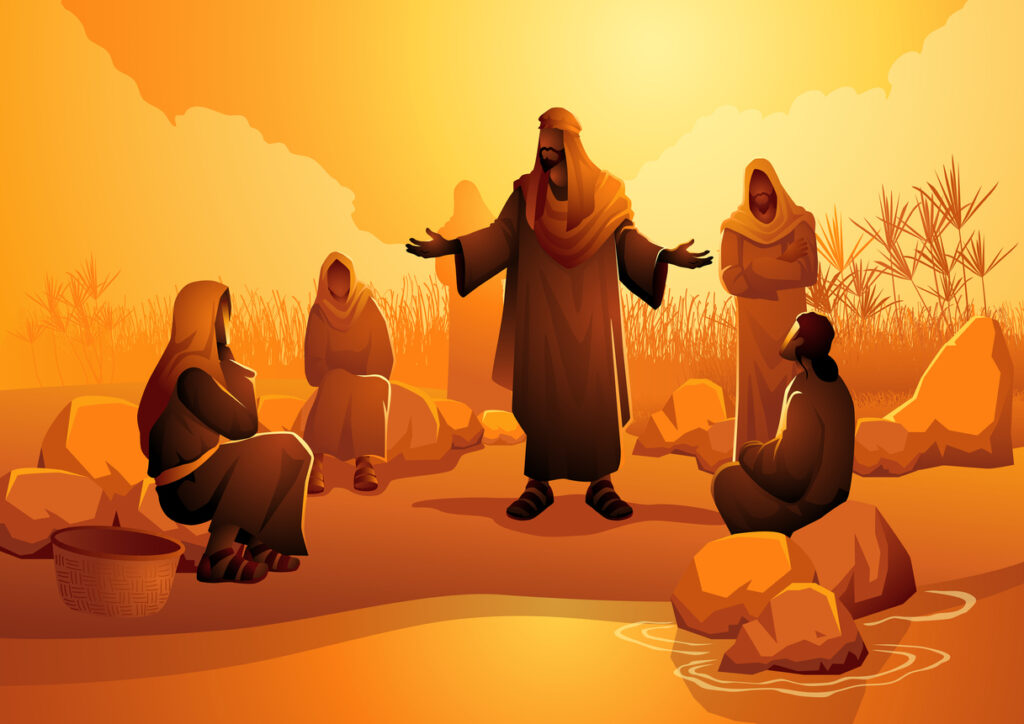The Thief on the Cross — The Lesson Everyone Misses
Every few months, the internet lights up with heated debates about the thief on the cross.
Was he saved without works?
Did he skip baptism?
Did he truly repent?
Most readers get caught up in these questions — but the real lesson is almost always overlooked. Far beyond theological squabbles, this brief exchange between Jesus and a dying criminal contains a profound message about God’s Kingdom, His plan for humanity, and the hope of resurrection that extends to all who choose life with Him.
The Thief Knew About the Kingdom
When the thief said, “Remember me when You come into Your Kingdom” (Luke 23:42), he wasn’t making a generic plea for mercy. He referenced the very message Jesus preached from the beginning:

The gospel of the coming Kingdom of God (Mark 1:14–15; Luke 4:43).
Either the thief had heard this message earlier in Jesus’ ministry, or Jesus managed to speak about it even while hanging on the cross. Either way, the implication is remarkable:
Even in His dying moments, Jesus was still proclaiming the gospel of the Kingdom.
What Jesus Actually Promised — and It Wasn’t Heaven That Day
Most translations read:
“Today you will be with Me in Paradise.” (Luke 23:43)
But this creates immediate scriptural problems:
- Jesus was dead for three days and three nights (Matthew 12:40).
- After His resurrection, He told Mary He had not yet ascended to the Father (John 20:17).
- The thief died that same day, meaning he was not conscious until resurrection (Ecclesiastes 9:5, 10).
Nothing about that day involved “Paradise.”
Since the Greek manuscripts had no punctuation, translators added the comma. The statement aligns much more naturally with:
“Truly I say to you today — you will be with Me in Paradise.”
In other words:
I’m telling you right now, in this moment of agony, that this is not the end. You will be there in the future — in the Kingdom, after the resurrection.
Jesus Wasn’t Granting Instant Salvation — He Was Affirming Future Hope
The thief wasn’t being judged that day.
He wasn’t instantly saved or condemned.
He wasn’t entering heaven.
Instead, Jesus affirmed his place in God’s future plan — a plan consistent with the rest of Scripture.
A Note on “Paradise” — It Refers to Earth Restored Under Christ’s Reign
When Jesus said “Paradise,” He wasn’t referring to a later theological idea of a heavenly realm for the saved.
Biblically, “paradise” (Greek: paradeisos) points to a restored, renewed Eden — the earth transformed under the Messiah.

Scripture consistently uses paradise imagery to describe the Millennial Kingdom and a world made right:
- A restored earth under Christ’s rulership:
“The Lord shall reign forever… His Kingdom rules over all.” (Psalm 103:19; Daniel 2:44) - Healing of the nations and restored creation:
“The desert shall blossom… the lame shall leap, the blind shall see.” (Isaiah 35:1–6) - Edenic restoration — the tree of life, healing, abundance:
“I will plant them… like a garden of renown.” (Ezekiel 36:35)
“The leaves of the tree of life… for the healing of the nations.” (Revelation 22:1–2) - The earth filled with the knowledge of God:
“The earth will be full of the knowledge of the LORD as the waters cover the sea.” (Isaiah 11:9)
This Eden-restored world — not heaven — is the “paradise” Jesus spoke of.
In other words, Jesus assured the thief:
“You will be with Me in the restored world — the Kingdom on earth.”
Jesus Was Affirming the Future Resurrection and Kingdom
- He will rise again — the second resurrection, when the rest of the dead live and receive their first true opportunity (Revelation 20:5; Ezekiel 37:12–14).
- He will have a real opportunity to know God — judgment begins now for God’s house, but the rest await the resurrection and instruction (1 Peter 4:17; Isaiah 25:7; Revelation 20:11–12).
- He will be taught, healed, and restored — the prophetic picture of the Kingdom: Isaiah 35:5–6; Ezekiel 36:26; Isaiah 2:2–4.
- He will then be judged based on his choices — consistent with Scripture (Revelation 20:12).
This mirrors God’s biblical judgment:
not a last-minute gamble, not a loophole of deathbed salvation, but part of God’s larger plan to build a spiritual family.
One of Jesus’ Final Acts Was Preaching the Kingdom
While enduring unimaginable suffering, Jesus didn’t just endure — He preached.
He encouraged.
He pointed forward.
He affirmed to the thief, and to everyone who would ever read this account, that:
- The Kingdom is real (Daniel 2:44; Luke 22:29–30)
- The resurrection is coming (John 5:28–29)
- God’s plan is bigger than this life (Romans 8:18–23)
- There is purpose behind human suffering (Romans 8:28)
- And God’s invitation extends far beyond those who understood in this age (Isaiah 11:9; Habakkuk 2:14)
It is a breathtaking moment once you truly see it.
Concluding Thoughts
The thief on the cross reminds us that God’s plan is bigger than our debates. Salvation isn’t a last-minute gamble, nor a checklist of rituals completed in desperation. Jesus’ words point to the Kingdom — a restored, renewed world where all will have the opportunity to truly know Him, be taught, healed, and restored. In the midst of suffering, Jesus didn’t just endure; He offered hope, direction, and a promise that His Kingdom is coming. For anyone reading this account today, the message is clear: God’s purpose is unfolding, and His invitation remains open to all who seek it.


